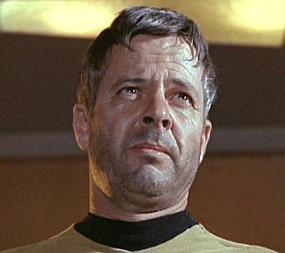If you were to ask me what one lesson stands out in my life in this last decade, I would point to control.
Fact is, you and I don’t have any. Control is an illusion created by our culture. We in America idolize the self-made bootstrapper, yet if we can’t control whether or not we take our next breath, then ultimately, we are not in control of our lives.
Most people in America, most Christians even, have their minds fogged by the illusion of control. And the illusion is easy to believe because we surround ourselves with gadgets and services that perpetuate it. We read books, especially self-help tomes, that reinforce that we can be masters of our personal kingdoms. We are told that getting ahead is all about our own efforts. Our society holds out a roadmap that shows that if we just work hard enough, we can walk from the mall entrance to Neiman Marcus.
But if you’ve lived long enough, you begin to see what we have been fed about controlling our lives is a lie. Sometimes, no matter how hard we work toward a goal, it never arrives. Sickness intrudes. Randomness strikes. A butterfly in China flaps its wings and a tornado destroys a palatial estate accrued through decades of sweat. In the great mall of life, we end up in Spencer Gifts staring at black light posters instead of negotiating down the price of a Botero at Neiman.
The Great Recession, as this economic downturn has been called, is proving to be a factor in waking some Americans out of the control delusion. People who did everything right, who followed the mall map to a T, still saw their shopping trip of life go awry. Now they sit in the food court sucking down an Orange Julius and not the complimentary Roederer Cristal handed out by the luxury retailers.
I suspect that the next couple years will be an enormous wake-up call to Americans, for many will find themselves progressively sliding down the class ranks. And the resulting anguish will be like nothing our generation has ever seen.
But then, basing our lives on our own ability to control them can have no other outcomes except grief. The expectations run too high.
A few years ago, I read The Black Swan, a fascinating book by Nassim Nicholas Taleb. The author posits that too few people account for the unexpected and that most success is illusory, the product of chance happenings that are all that separate the board room from the mail room. Taleb states that those business celebrities who write books about how they achieved their success might as well have saved all their scribblings and just written, Hey, I got here by dumb luck. When even the secular crowd wakes up to the lack of control we have over our destinies, maybe hope for positive change within our country remains.
What the Bible says:
Again I saw that under the sun the race is not to the swift, nor the battle to the strong, nor bread to the wise, nor riches to the intelligent, nor favor to those with knowledge, but time and chance happen to them all. For man does not know his time. Like fish that are taken in an evil net, and like birds that are caught in a snare, so the children of man are snared at an evil time, when it suddenly falls upon them.
—Ecclesiastes 9:11-12
I have known too many cases where hard work failed to win the day. I have known too many people who did everything right, but they still got steamrolled by events they could not foresee. I know people who made decisions praised as wise by the wisest of the wise, but who still saw that wise choice end in bitter fruit.
We are not in control of our lives. We deceive ourselves when we insist we are.
For the Christian, the answer to the delusion of control is here:
You are not your own, for you were bought with a price.
—1 Corinthians 6:19b-20aSet your minds on things that are above, not on things that are on earth. For you have died, and your life is hidden with Christ in God.
—Colossians 3:2-3For this light momentary affliction is preparing for us an eternal weight of glory beyond all comparison, as we look not to the things that are seen but to the things that are unseen. For the things that are seen are transient, but the things that are unseen are eternal.
—2 Corinthians 4:17-18
As I look at the American Church of 2010, I see people struggling to maintain control. We consider ourselves to be our own, masters of imagined destinies that line up more with the American Dream than with having a mind set on the eternal unseen. To such people, the following verse is the strangest in the Bible and is prayed with the least conviction:
Give us this day our daily bread….
—Matthew 6:11
When we have surrendered control of our lives entirely to Jesus, we can pray Matthew 6:11 with joy.
But for too many people, praying such a prayer becomes an issue of abandoning too much control. It asks too much. It asks us to rely on something foreign to us: faith.
You see, faith is the opposite of control. Faith says, “I do not know what tomorrow will hold. I cannot even control today. Instead, I will live by the Spirit.  I will live with the uncertainty of the world and instead exercise the muscle of faith that I have let atrophy for too long. Christ is in me; therefore, I have hope.”
I will live with the uncertainty of the world and instead exercise the muscle of faith that I have let atrophy for too long. Christ is in me; therefore, I have hope.”
The times we live in now will tax many people. All the old refuges will fail. The Church must revise the way it thinks about life, putting Christ first and its own finaglings last. We will have to experience what it means to depend on Jesus alone for physical healing because we can no longer control our health care because we can no longer afford doctors and hospitals. It will mean praying for food and expecting to receive it, even when the grocery store shelves are bare. It will mean learning to be thankful for even the smallest blessing we receive in faith from God. It will finally mean learning to move beyond just talking about faith and actually living it.

 an alien weapon hellbent on destroying everything it encounters as it drifts through space, even entire planets. (Star Trek apologists claim the invincible weapon was designed specifically to combat the Borg.)
an alien weapon hellbent on destroying everything it encounters as it drifts through space, even entire planets. (Star Trek apologists claim the invincible weapon was designed specifically to combat the Borg.)